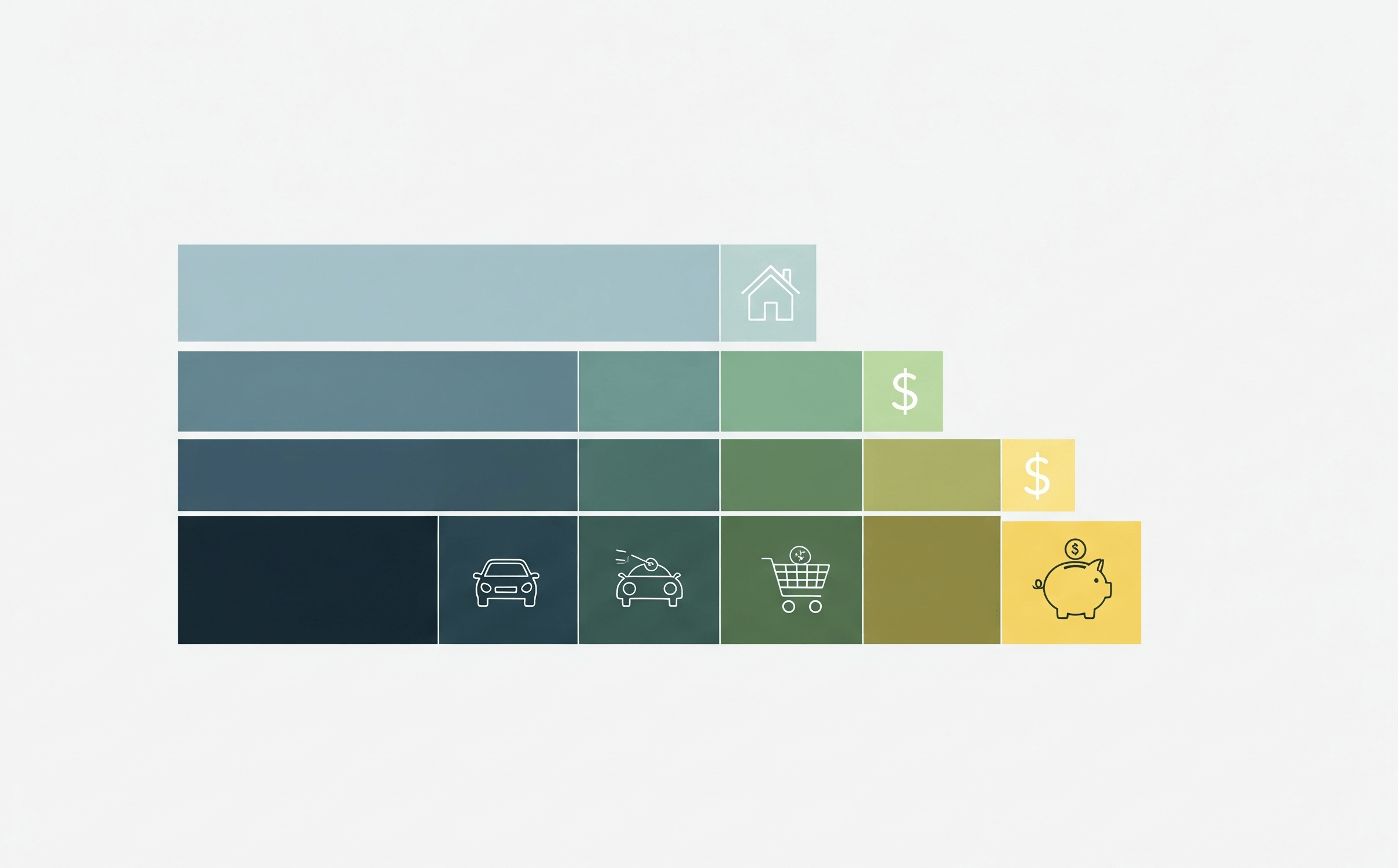When handling finances, personal budget categories are great for separating them from other finances. A foundation of your personal finances, it's great to define to avoid overspending and good to paint a clear picture of your financial goals-like paying down debt or improving credit.
This article breaks down the most common personal budget categories-from groceries and subscriptions to debt payments and savings-and shows you how to build a budget that reflects your life. We're not talking about household budgets or shared family plans. This is for individuals managing their finances-whether you're budgeting on your own, trying to stop living paycheck to paycheck, or working to build better habits.
You'll learn how to organize your money into simple, practical categories, how to avoid common budgeting mistakes, and how tools like Cheers Credit Builder can plug directly into your budget to help you build credit while saving money.
You're Not Bad With Money-You Just Don't Have a System Yet
Every month, it feels like your paycheck disappears without warning. You know you paid rent. You know you bought groceries. However, your balance is lower than expected, and you're unsure why.
This is where personal budget categories make the difference. They give your money structure. Not a spreadsheet full of restrictions-just a simple way to keep track of your spending. No roommates, no family planning, just your everyday decisions, laid out clearly.
And that clarity changes everything. When you know where your money's going, you can stop guessing, start adjusting, and feel more in control.
What Counts as a Personal Budget?
Personal budgets are about your money-how you earn it, spend it, and save it. That means it should reflect your choices. Not your partner's, not your family's, not a roommate's. Just yours.
If you're managing bills, trying to cut spending, building credit, or saving for a big purchase, a personal budget provides the map. And personal budget categories are how you draw the routes.
Core Personal Budget Categories That Keep You on Track
This isn't an exhaustive list, but it's where most people start. These personal budget categories provide you with enough structure to identify your patterns, without making you feel confined.
Groceries
Your food, your kitchen staples, your meal prep. Keeping groceries separate from takeout is one of the easiest ways to spot where your spending can shift.
Eating Out
Restaurants, delivery, coffee shops-this one adds up fast. If you don't separate it from groceries, it's hard to know how much you're spending on convenience.
Subscriptions & Streaming
Music, TV, storage apps, wellness memberships. Most people are subscribed to more than they realize. Categorizing these makes canceling easier if money gets tight.
Debt Payments
Credit cards, personal loans, Buy Now Pay Later, student loans-if you're paying it off, it belongs here. This is the category that has the most significant impact on your credit.
Savings
Emergency funds, short-term goals, even a small auto-transfer. Labeling it gives it power. And seeing it grow month after month builds momentum.
Transportation
Gas, rideshare, bike repairs, bus passes. Anything that gets you where you need to go belongs here.
Health & Wellness
Gym, therapy, vitamins, prescriptions, over-the-counter meds. Too often ignored, but essential to plan for.
Personal Care
Haircuts, clothing, skin, and body products. This is about taking care of yourself, not splurging.
Entertainment & Hobbies
Movies, books, creative tools, streaming add-ons. When you plan for it, you don't have to feel bad about enjoying it.
Fun Spending
Call it "misc," "flex," or "fun." This is your no-questions-asked money. When it's budgeted, you can spend it without guilt.
Giving & Gifts
Donations, birthdays, helping a friend. It's easier to be generous when it's already part of the plan.
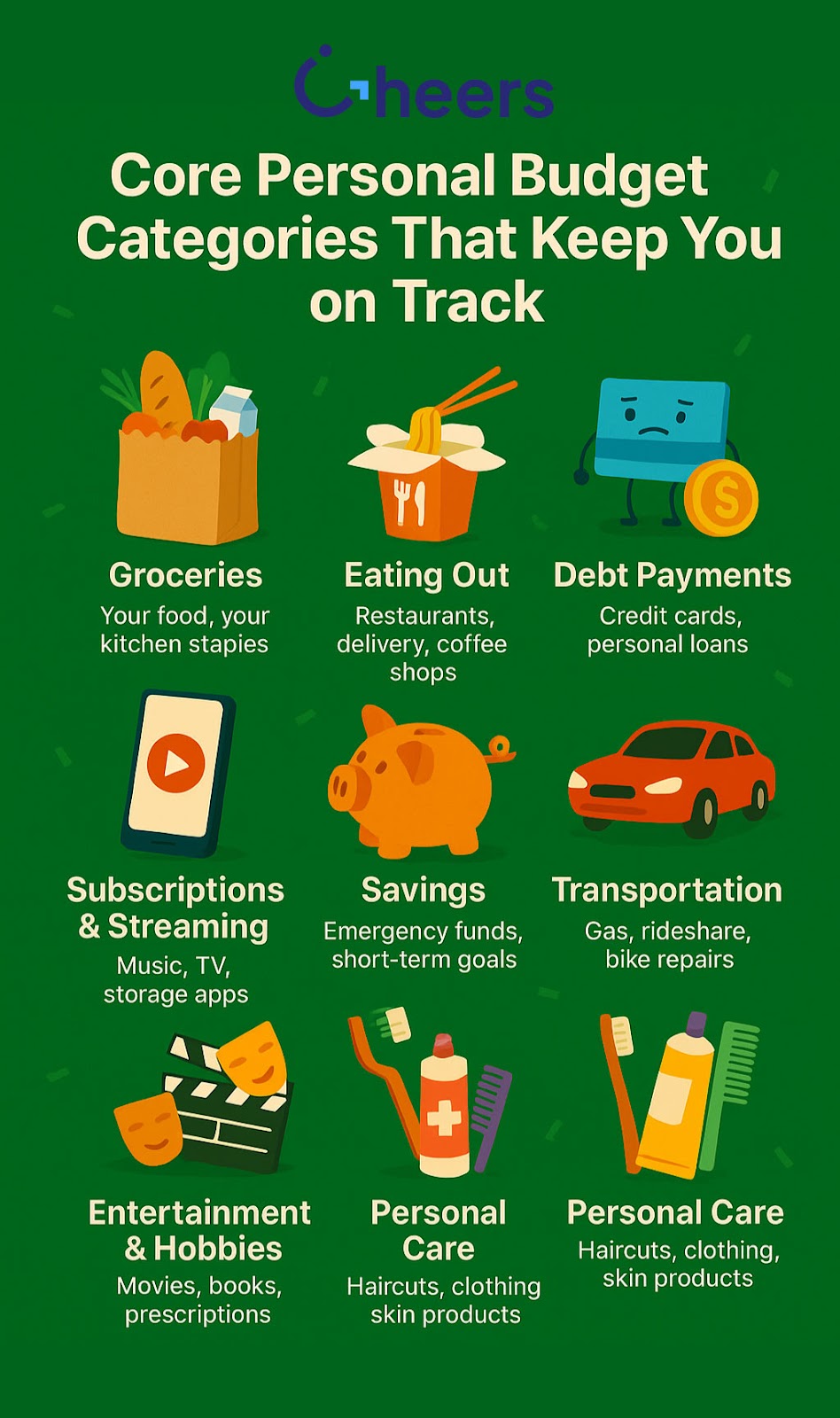
How to Start Using Personal Budget Categories
You don't need a fancy app. You don't need a degree in finance. You need a way to track and label your spending. Here's a simple system:
- Review your transactions from the last month.
- Group each expense into one of the categories above.
- Tally what you spent in each category.
- Ask yourself: What surprised me? What felt too high? What didn't I plan for?
- Set target amounts for each category for next month.
- Track as you go, weekly or biweekly.
The more often you check in, the easier it gets. It doesn't have to be perfect. It just has to be yours.
Where Cheers Credit Builder Fits In
If you're including a category for debt payments or savings in your budget, you've already got space for building your credit.
Cheers Credit Builder is a fixed, low-cost credit-building plan that slides right into your monthly budget. You choose your payment amount (between $22 and $132/month), and that money is held in a savings account insured by a partner bank. Cheers reports your payments to all three credit bureaus, helping build your payment history, which can impact your credit score.
No credit check. No setup fees. At the end of your term, you will receive your full savings back (minus interest). It's one of the easiest personal finance decisions you can automate, and it fits right into the categories you're already managing.
Build a Budget That Reflects Your Real Life
The goal isn't to cut everything or track every penny forever. It's about building a rhythm where you know what's coming, where it's going, and how to adjust.
When you create a budget that includes real personal budget categories—groceries, savings, debt, and fun—you make better choices without feeling deprived. You stop guessing and start deciding.
If your next goal is to improve your credit or finally save something every month, start with the categories. Then make a space for Cheers. It's one line item that pulls double duty for your future.
Cheers is not a bank—deposit accounts held by Sunrise Bank, Member FDIC.

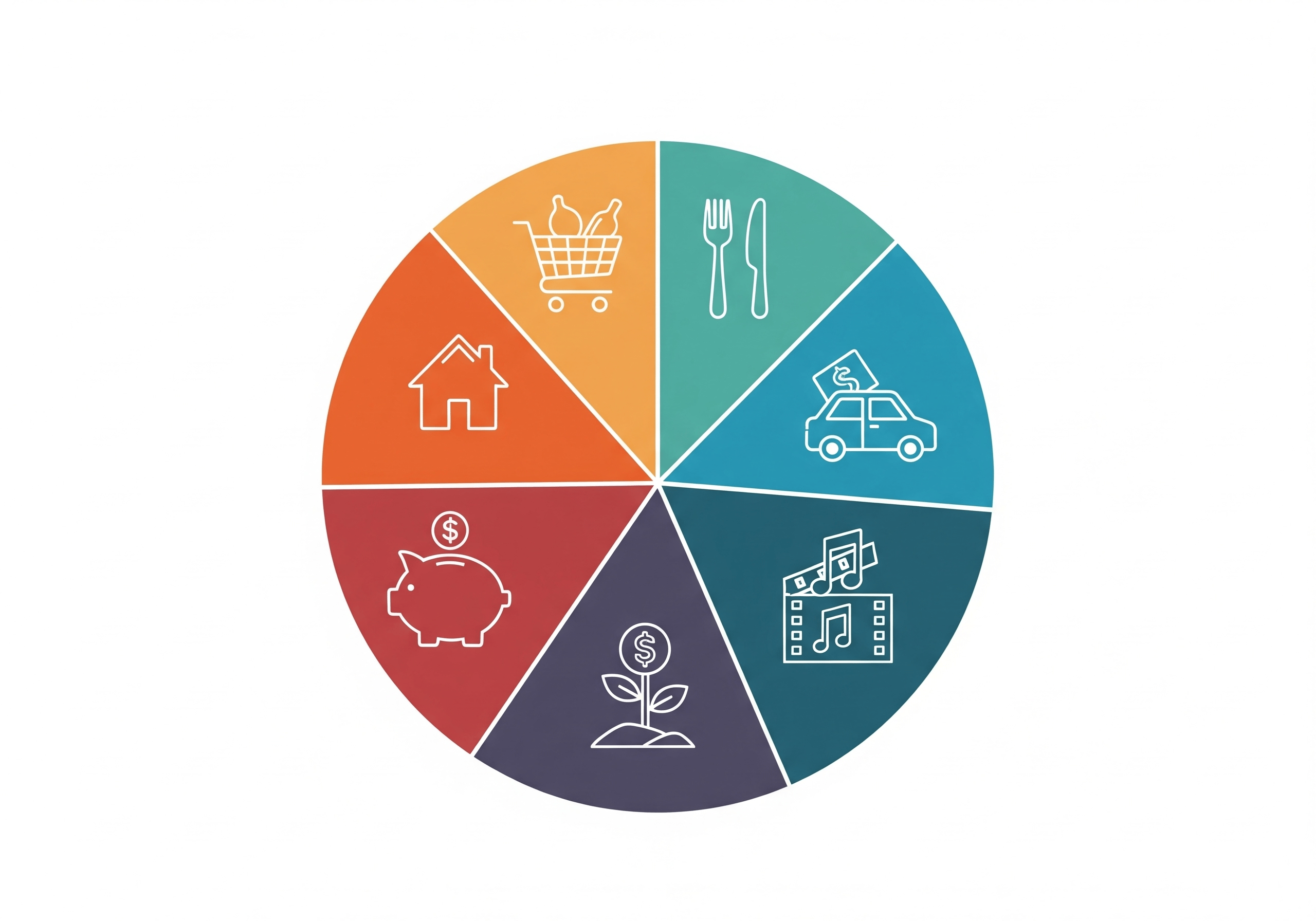



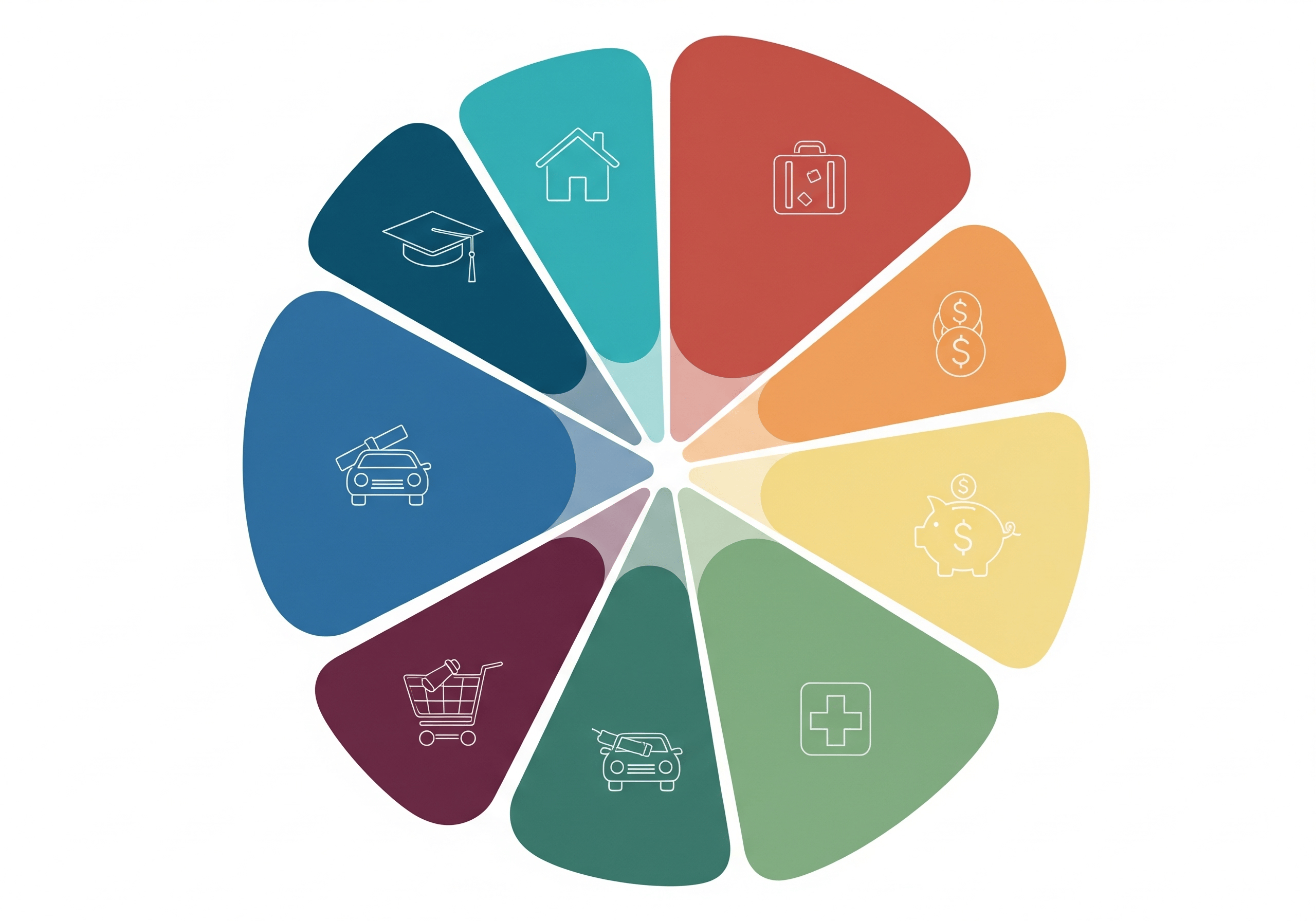
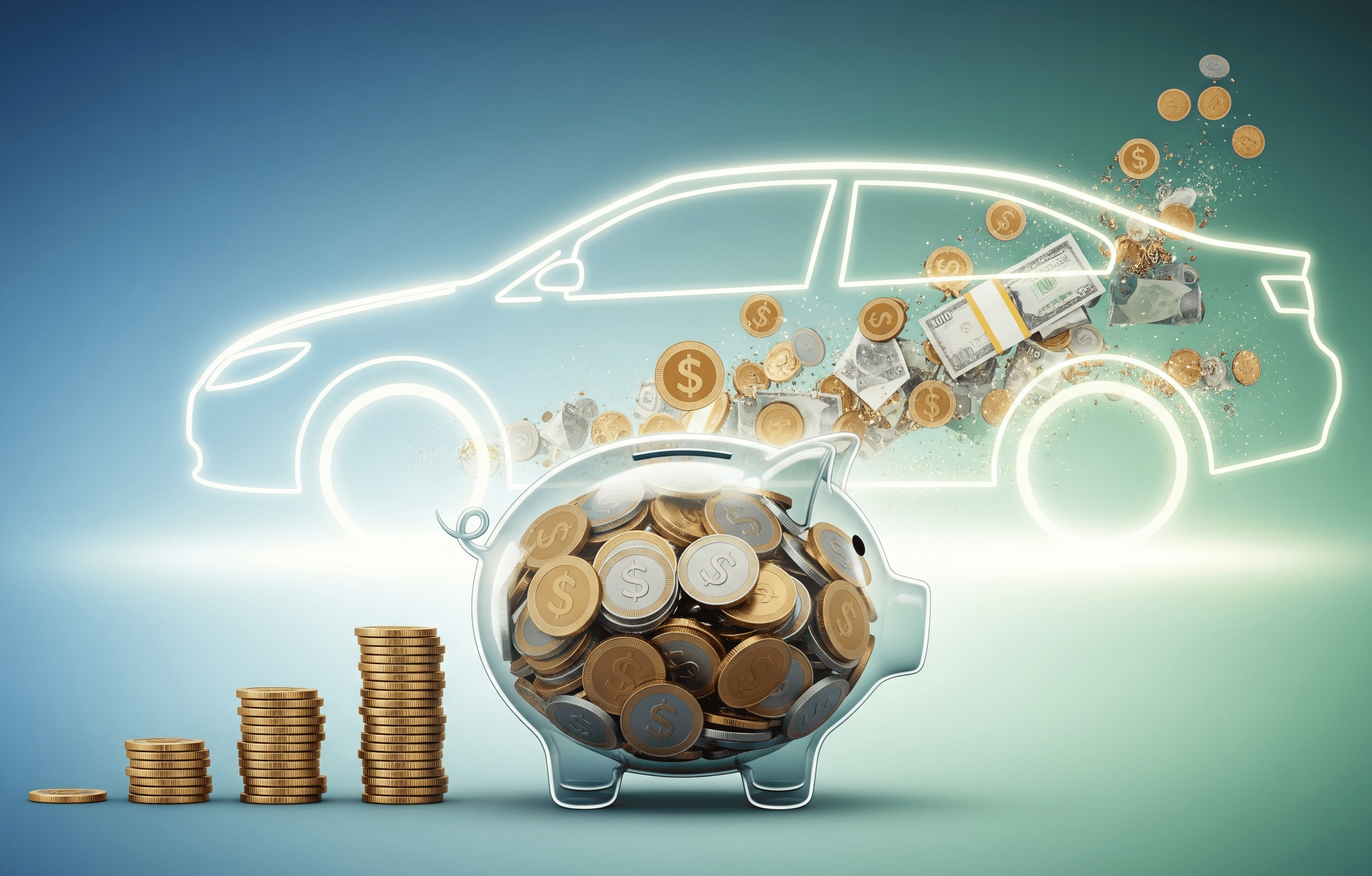
.png)

